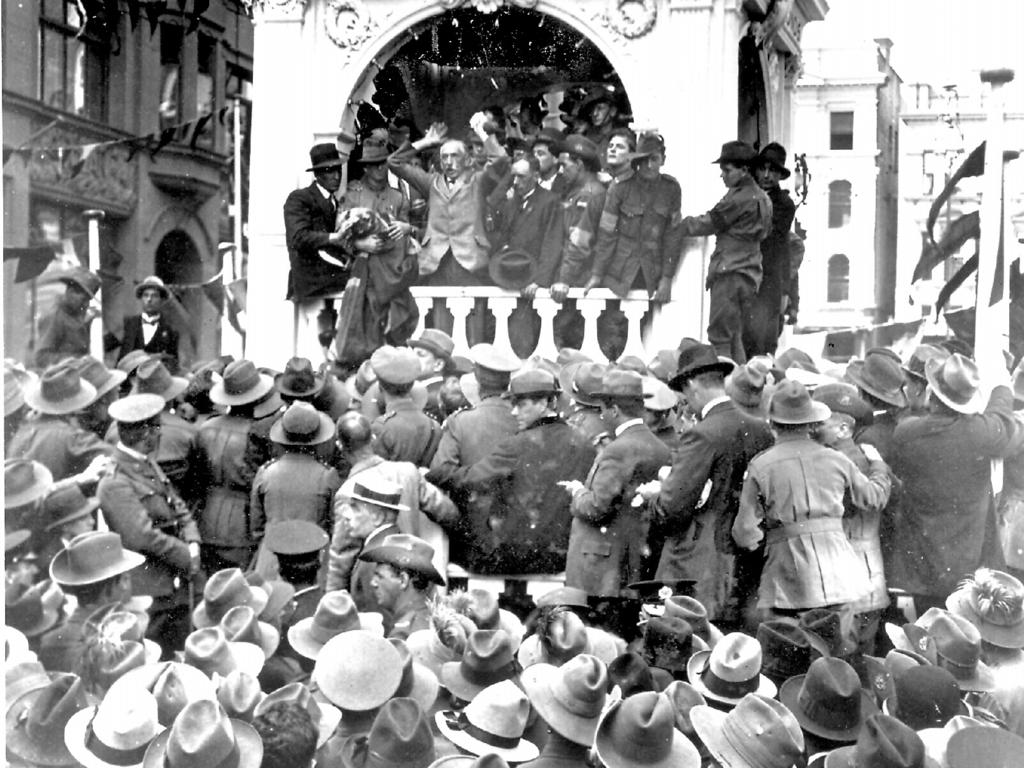
My trusty backpack had come apart at the seams soon after I arrived in the city. I didn’t think of it again until my last day, when I set out under leaden skies in search of a suitable replacement. All morning, I trudged through the winter slush, peering into the odd bag shop, thinking a like-for-like purchase would be easy enough to find. By late afternoon, the replacement didn’t seem all that important, so I took refuge in a small bar overlooking the Vistula, cradling a glass of unpronounceable vodka.
Having forgotten the matter of the backpack altogether, I left the bar and walked into the old town. The river outside was frozen, a vast, serpentine slab of ice that distended right through the heart of the medieval city. The streets behind it were silent, muffled by the heavy snowfall. It was there, in that beautiful but melancholy quarter, where history hangs so pungently in the air, that I first spotted it.
For the life of me, I cannot remember the name of the store; in fact, on first impressions, it did not look like a store at all, just an old, shambling wreck, whose glory days had long since passed. It wasn’t until I saw the set of briefcases, nicely arranged, side-by-side, in the shop window that I understood what was inside.

The man who greeted me from behind the counter was stooped and spindly, and obviously surprised to see a customer. He intuited immediately that I was foreign and addressed me in broken English as I explained my pathetic attempts to find a replacement for my backpack.
“You won’t find one of those in here,” he said dryly, guiding me instead to an assortment of vintage leather cases at the back of the shop.
Certainly none were suitable for my purposes, but there was no denying their sense of old world charm, dignity and panache. The next morning I departed Poland with one backpack held together by shoelaces and masking tape and a brand new leather briefcase, clutched firmly in hand. For almost a year I carried my Krakow briefcase to and from the office until a longer commute and a new work laptop forced its retirement. It was, primarily, a paper-going vessel, crafted for an analog age, now entirely impractical for the bulky demands of the contemporary world.
Back in the 1990s, my dad carried a black briefcase for work. It was plain and rigid and did not look at all practical. Still, I remember being impressed by its golden latches and multi-dial combination lock, which lent it a cool but deceptive air of sophistication; something very important must be inside here, I often thought, imagining what kind of top secret documents it might contain. Then, at some point, it disappeared and was replaced, first, by a frumpy laptop bag and then, years later, by the all too ubiquitous mini backpack.
Nowadays, you rarely see a proper leather briefcase on a train or bus; take a stroll down Collins Street or Martin Place during peak hour, and you’ll be hard pressed to count them on the fingers of one hand.
My briefcase, meanwhile, sits quietly in the corner of my study, slowly gathering dust. It deserves an outing some day soon, I know. But for the moment it remains a pleasant anachronism, just waiting for the reveries of the past to bring it back to life.








A little over a decade ago, I bought a smart, snap-lock briefcase in a rundown luggage store at the edge of Krakow’s old town. It was a smooth, slimline piece of craftsmanship, leather brown, nicely patterned and topped with a simple handle and buckle that glinted in the sun. It was scuffed at the base and frayed at the edges, but its imperfections made it all the more desirable. It belonged to a different world.